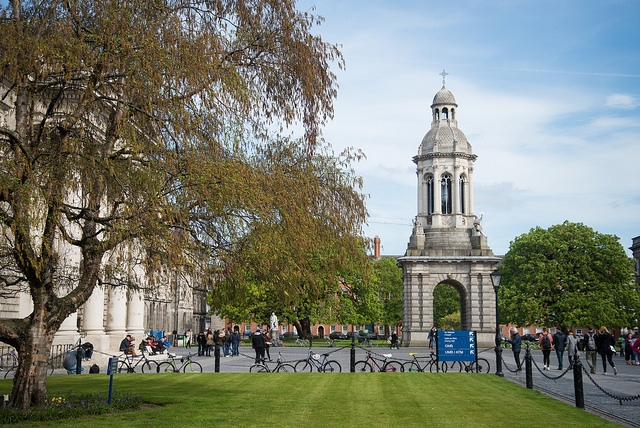Employment levels for graduates have reached 70 per cent – a rate comparable to the those seen during the economic boom – according to a report from the Higher Education Authority (HEA).
The report surveyed 18,000 graduates from the class of 2016 and found that most were employed in Ireland or overseas, at 60 per cent and 10 per cent, respectively. Of the remaining graduates, the largest number, 31 per cent, went on to further studies, with five per cent seeking employment and three per cent unavailable for work.
The report did not include graduates from institutes of technology, however, which make up a significant portion of employed graduates.
The Dublin and Cork areas were where graduates found the most employment. In the Dublin area, 42 per cent of graduates found jobs, while 17 per cent of graduates found jobs in the Cork-Kerry region. The southeast, border regions and the midlands had the lowest levels of graduate employment at four per cent, three per cent and two per cent, respectively.
Dr Graham Love, the Chief Executive of the HEA, expressed concern about the lack of graduates employed in these regions of Ireland in a press statement. He stated that one way to counterbalance this trend is the development of technological universities, which he claims could ensure regional development. Technological universities recently became one step closer to reality after the cabinet approved the progression of the Technological Universities Bill in November.
Education graduates had the highest level of employment, at around 85 per cent. Technology graduates had the highest starting salaries with 38 per cent of graduates earning more than €33,000. In contrast, arts and humanities graduates had a lower level of employment and a lower starting salary with 15 per cent of graduates earning less than €13,000. However, across the board, employment rates are higher for graduates with college degrees.
The unemployment rate for honours bachelor’s degree graduates was three per cent, compared to nine per cent for those with an upper-secondary level education and 13 per cent for those with a lower-secondary level education.
As is common, salaries increased with the level of education. Forty per cent of graduates with an honours bachelor’s degree earned less than €25,000. Graduates with a doctoral degree earned more than €45,000 at a rate of 35 per cent, compared to 18 per cent with higher diplomas and three per cent for honours bachelor’s degree graduates.







